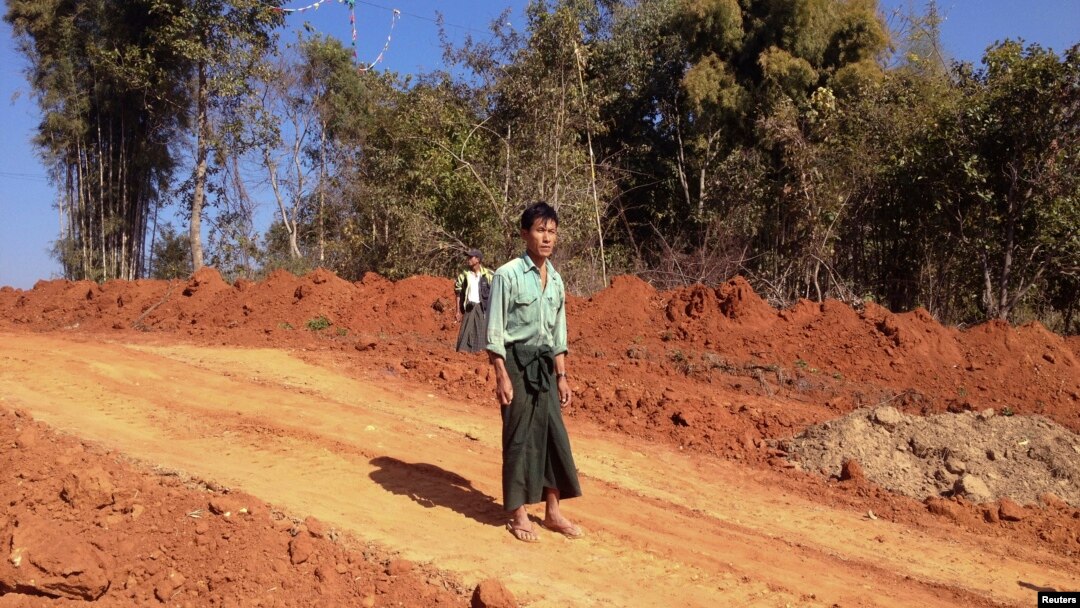Natural gas has started flowing to energy hungry China via a controversial 793-kilometer pipeline from Burma.
The gas pipeline, and a parallel crude oil pipeline that is still under construction, connect the Bay of Bengal with China's Yunnan province. The new pipelines will allow China to avoid shipping through the Straits of Malaca and the South China Sea.
China-Burma analyst U Aung Kyaw Zaw said the project is vital for Beijing.
"China is in great need of energy, especially gas, so this project is extremely important for China especially after the cancellation of Myitsone Dam project," he said.
The pipelines, agreed to by Burma's previous military government, have been criticized by many for failing to address Burma's internal energy needs and the issue of land seizures.
The new government in Rangoon says it is watching the situation closely, according to the official overseeing the pipelines, General Secretary of Parliament's Mining and Natural Resources Committee U Hla Swe.
"This gas pipeline project agreement was made during the previous military government era. However, our committee is closely monitoring this situation and will work for the interest of the locals of the areas the gas pipeline crosses," said U Hla Swe.
But Shwe Gas Watch environmental leader Wong Aung said the pipleline projects still need more transparency.
"This pipeline project, which stretches from Rakhine to Shan states, has resulted in land grabbing and causing plight of livelihood for the locals," he said. "None of these issues have been addressed."
The gas pipleline is expected to send 12 billion cubic meters of gas natural gas to China annually. The oil pipeline will have a capacity of 22 million tons of crude oil per year.
The gas pipeline, and a parallel crude oil pipeline that is still under construction, connect the Bay of Bengal with China's Yunnan province. The new pipelines will allow China to avoid shipping through the Straits of Malaca and the South China Sea.
China-Burma analyst U Aung Kyaw Zaw said the project is vital for Beijing.
"China is in great need of energy, especially gas, so this project is extremely important for China especially after the cancellation of Myitsone Dam project," he said.
The pipelines, agreed to by Burma's previous military government, have been criticized by many for failing to address Burma's internal energy needs and the issue of land seizures.
The new government in Rangoon says it is watching the situation closely, according to the official overseeing the pipelines, General Secretary of Parliament's Mining and Natural Resources Committee U Hla Swe.
"This gas pipeline project agreement was made during the previous military government era. However, our committee is closely monitoring this situation and will work for the interest of the locals of the areas the gas pipeline crosses," said U Hla Swe.
But Shwe Gas Watch environmental leader Wong Aung said the pipleline projects still need more transparency.
"This pipeline project, which stretches from Rakhine to Shan states, has resulted in land grabbing and causing plight of livelihood for the locals," he said. "None of these issues have been addressed."
The gas pipleline is expected to send 12 billion cubic meters of gas natural gas to China annually. The oil pipeline will have a capacity of 22 million tons of crude oil per year.




